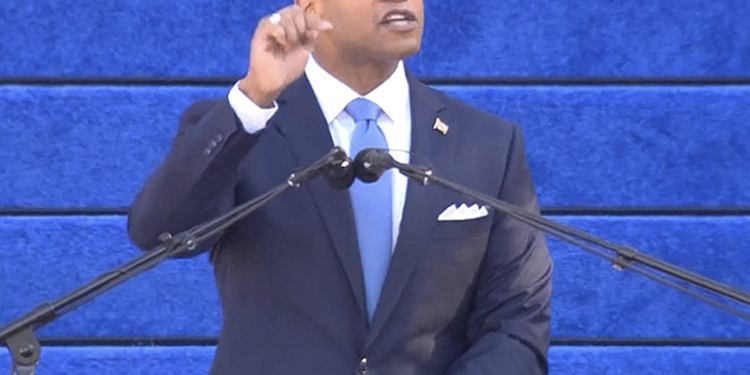Governor Wes Moore today announced $130 million in Climate Pollution Reduction Grants awards from the U.S. Environmental Protection Agency that will help Maryland become one of the greenest states in the nation and support the creation of thousands of new green jobs. The grants will also support workforce training for local workers on emerging charging technology to make Maryland more competitive in electrifying the transportation sector.
“It isn’t enough to ask people to see themselves in the consequences of climate change — they also need to see themselves in the progress of climate action,” said Gov. Moore. “By moving in partnership with leaders at the local, state, and federal levels, we are creating new green jobs, driving economic growth, and building new pathways to prosperity for all, while protecting our planet. That’s what today’s announcement is all about.”
Authorized under the Inflation Reduction Act and allocated through coalitions of states, the funding may be used to implement projects that significantly reduce greenhouse gas emissions and promote land conservation and restoration in support of Maryland’s Climate Pollution Reduction Plan. Implementing the plan will create 27,000 green jobs, many of which will not require a college degree.
“Progress happens when you form partnerships at the local, state and federal levels to meet our bold climate goals and fund the green transition,” said Maryland Department of the Environment Secretary Serena McIlwain. “This award represents a step forward in creating a better future for our children and grandchildren by accelerating the use of clean trucks on our highways and expanding our tree canopy to reduce carbon pollution.”
The funding supports two coalition proposals.
The Clean Corridor Coalition: Led by New Jersey, a consortium that also includes Maryland, Connecticut, Delaware will receive approximately $250 million, including $2.5 million for the Maryland Department of Environment and $78 million for the Maryland Department of Transportation to support strategic planning and transformative investments in zero-emission infrastructure for medium- and heavy-duty vehicles on the Interstate 95 corridor.
The Climate Pollution Reduction Grants Atlantic Conservation Coalition: Led by North Carolina, the coalition will receive more than $400 million, including $50 million for the Maryland departments of the environment, natural resources, agriculture and transportation for natural carbon sequestration through improved forest management, agroforestry, and the protection and restoration of highly threatened, high-carbon coastal habitats and forests.
“As more goods move across Maryland and help fuel our economy, transitioning trucks to zero-emission technologies is essential to meeting Maryland’s carbon reduction targets,” said Maryland Transportation Secretary Paul J. Wiedefeld. “We are very pleased to be part of this innovative, interstate partnership to achieve our shared goals around climate and the future of the I-95 corridor. Working together, we can create a charging network that helps drive the adoption of zero-emission trucks.”
The Clean Corridor Coalition grant supports the Clean Trucks Act of 2023, which allows the state to develop sales targets to increase zero-emission medium- and heavy-duty vehicles starting in model year 2027. The grant also compliments the recent federal grant awarded to Volvo Group to manufacture clean freight vehicles at its production plants, including its plant in Hagerstown.
“This new federal funding will have significant benefits in Maryland by increasing the state’s ability to reduce carbon emissions through natural methods that also improve the resilience of the state’s shorelines, marshes, and forests,” said Maryland Department of Natural Resources Secretary Josh Kurtz. “Of particular importance, the grant funding is focused on the rural, overburdened, and underserved regions of the lower Eastern Shore to help them insulate properties and infrastructure against the predicted effects of climate change, including sea level rise, stronger storms, and heat waves. Thank you to the EPA and the project partners for making this possible.”
“The Maryland Department of Agriculture has been a leader in conservation efforts, with increasing interest in agroforestry among our producers,” said Maryland Department of Agriculture Secretary Kevin Atticks. “These funds will have a significant impact to advance the work being done by the department to increase soil carbon sequestration and build climate resilience.”






